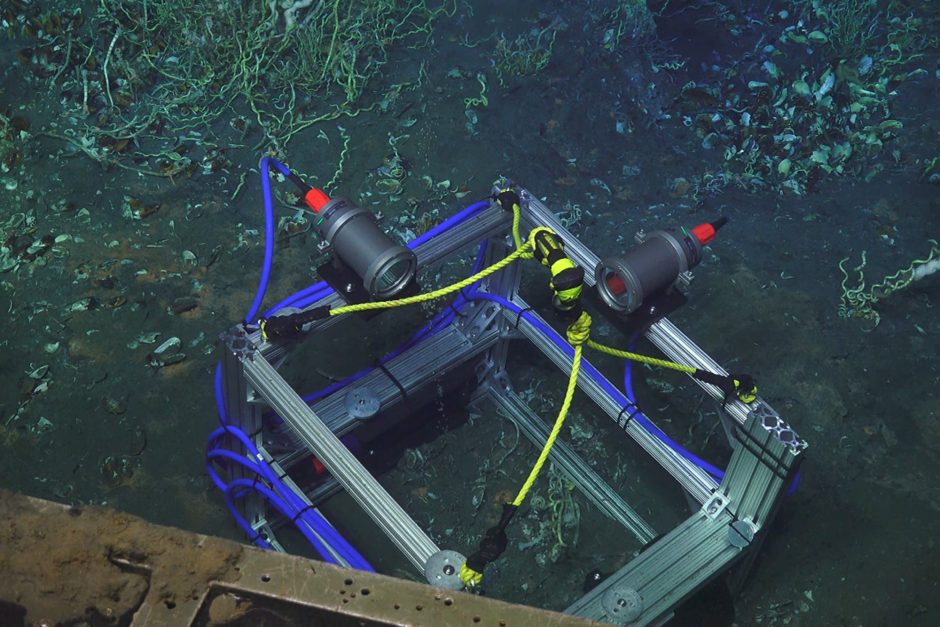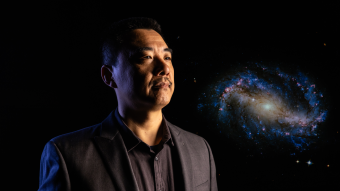
July 14, 2025
Natural hydrocarbon seeps — places where gases leak from the seafloor — occur all over the world. These seeps release streams of tiny gas bubbles into the ocean, feeding deep-sea microbes that rely on chemicals such as methane.
Binbin Wang, William Andrew Davidson Professor in the Department of Civil and Environmental Engineering at the College of Engineering at the University of Missouri has spent years researching hydrocarbon seeps. Now, he’s developed a new way to submerge his technology and get closer to the ocean floor.
“Studying this phenomenon gives us better understanding of deep-sea ecosystems as well as how methane is transported in ocean waters,” he said.
Up until now, researchers have been able to study small particles in water using particle image velocimetry (PIV): A laser lights up the particles, a camera takes a snapshot and software tracks how those particles move.
But PIV is typically not submerged. Wang needed to find a way to get this bulky technology to the ocean floor and back.
Wang and his team set out to create a new, underwater PIV system. Called RPiPIV, the system is powered by a Raspberry Pi — a low-cost computer about the size of a credit card. Unlike conventional PIV systems, RPiPIV can be tethered to a robot submarine for live monitoring or set up on the seafloor, making it easier to collect data on hydrocarbon seeps. Wang described the system in an article published in Limnology and Oceanography: Methods.
“The key benefits of RPiPIV are its portability and underwater capability,” Wang said. “It’s also much cheaper than conventional PIV because it uses off-the-shelf parts like a consumer laser and camera and the Raspberry Pi,” Wang said.
The technology behind RPiPIV is currently under review for a provisional patent application. Wang is interested in pursuing a commercial patent and envisions researchers employing the technology to study flows in lakes and streams.
“Sometimes the simplest solutions are the best,” Wang said. “By taking a practical, DIY approach to a complex technological puzzle, we’re accelerating the pace of discovery at that bottom of the sea, which can have an impact on life all over the planet.”
Read more from the College of Engineering


